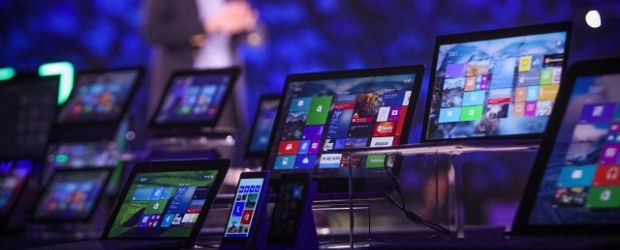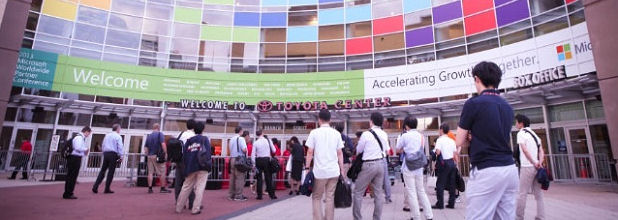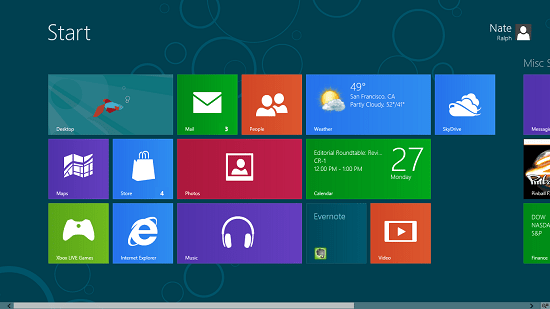HOUSTON – Microsoft is ending support for the Windows XP operating system on April 8, 2014, and if businesses are going to be up and running on a modern Windows OS by then they need to get started today.
The vendor is making a major push at its Worldwide Partner Conference to enable partners with tools, marketing messaging and incentives to capture what it sees as a $10 billion global opportunity: move the legacy commercial install base still running Windows XP to a modern and supported Windows OS before support ends, and businesses are vulnerable to exploit and other threats.
“Windows XP is a 12-year-old OS,” said Reshma Sinha Roy, director of Windows 8 marketing. “It’s an OS we all love and it was great for its time, but today we need to move on.”
Microsoft has two programs to support partners in making this happen: Go2Modern and TouchWin. The former provides marketing, messaging and quoting tools and collateral, as well as rotating incentives in the coming months, while the later specifically incents partner sales of touch-enabled Windows 8 devices.
According to Roy, the remaining XP install base is pervasive across verticals and spans all customer sizes, but the largest single group is SMBs, 47 per cent of them globally have yet to upgrade. In Canada, about 30 per cent of Microsoft’s overall install base is still on XP.
“You’re all sitting on a potential gold mine,” Roy told SMB partners at WPC.
And if partners have clients on XP, she said they’re also leaving money on the table. The new Office 365, for example, won’t run on Windows XP or Vista; only 7 or 8. And an XP upgrade is unlikely to be just a software sale. For many SMBs, their PCs won’t be able to run Windows 7 or 8, so that likely means a hardware sale as well.
That’s why Microsoft is pitching a three-pronged opportunity around hardware, software and services, and has incentives designed to drive attach. For example, bundling a new tablet or touch-enabled notebook with Windows 8.1 and Office 365. Steve Jensen, Windows client marketing lead for SMB with Microsoft, said beginning in August Microsoft will offer 20 per cent discounts on XP and Office attach deals, and others as well.
“No matter what the migration package is you can make sure the customer feels they’re getting a great offer on both the hardware and the software,” said Jensen.
The pitch should be around the value of the modern OS to the specific business case of the customer, said Jensen. But in a departure for Microsoft that’s in line with its evolution into a devices and services company, Jensen said the sales motion should be around driving devices.
“This is a big departure for some folks that may not have deep connections with distributors yet, but 70 per cent of XP migrations will be through a new device,” said Jensen. “Then you can attach and upsell. Leave no XP PCs behind; that’s one of my mottos this year.”
In Canada, Microsoft and its partners are pushing hard to migrate that remaining 30 per cent still on XP said Henrik Gütle, director of the Windows business group at Microsoft Canada. They’re helping customers to see what the implication are around being on an unsupported platform.
“At the end of the day, my biggest concern is the deployment cycle takes a long time; a larger enterprise should be 50 per cent finished by now,” said Gütle.
Gütle’s team is looking at Canadian-izing the Go2Modern marketing materials, and will be adding Canadian case studies shortly to help partners make the pitch. And while Microsoft’s focus is around Windows 8, it likely recognizes many businesses will opt for Windows 7, which is why its messaging is around “modern Windows” instead of Windows 8 specifically. Incentives are based around Windows 8 sales, but Windows 8 Pro comes with downgrade rights to Windows 7.
And most enterprise clients are exercising those downgrade rights said Brian Bourne, CEO of Toronto-based Microsoft partner CMS Consulting. They stay out of the hardware space but are heavily involved in planning and assisting Windows XP to Windows 7 migrations.
He said he’s not having to sell clients too hard on the need to migrate; it’s just a matter of getting it done.
“A lot of the conversation right now are companies that have left it to languish. They’ve gotten 14 years out of XP, so it’s not why would you move, it’s how to do it properly,” said Bourne. “People need to try to figure out what it means, how they’ll use this IP, and what they’ll refresh along with it. It quickly gets into what apps to we want to remediate, and what apps do we want to modernize.”





No one likes the new Licensing model that Microsoft is using and who want to rent their office product or trust Microsoft to store documents safely and securely. Windows 8 should have been just a tablet o/s no one in business likes it. All most business user want and need is Mail, Word processor, Spreadsheet and their EPR. The new Microsoft pricing model is getting prohibitive.